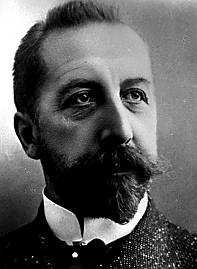Chr. Michelsen Institute

The Chr. Michelsen Institute (CMI) was founded in 1930, and is currently the largest centre for development research in Scandinavia. CMI is an independent, non-profit research foundation for policy-oriented and applied development research. Headed by the director Ottar Mæstad, it employs 40 social scientists, primarily anthropologists, economists and political scientists. CMI receives core funding from the Norwegian Research Council (NFR) and project support from Norwegian state ministries and agencies, and Norwegian and international non-governmental organisations.
CMI hosts the Anti-Corruption Resource Centre, also referred to as U4.
Research and cooperation
The institute’s geographical focus is on Sub-Saharan Africa, South Asia, Central Asia, the Middle East, and partly also South America. CMI focuses its research around ten thematic areas: Aid, Global health and development, Governance and corruption, Natural resources, Peace and conflict, Rights and legal institutions, Public finance management, Poverty dynamics, Cultures and politics of faith, and Gender relations from the local to the global.
CMI has formal cooperation agreements with various research institutions in Africa, Asia and the Middle East. Through institutional cooperation CMI facilitates joint research and projects, institutional development and competence building. In Norway, CMI has close formal institutional collaborations with the University of Bergen (UiB) and the Norwegian School of Economics and Business Administration (NHH), including teaching, joint research projects and support to graduate students and PhD candidates.
History

Founded in 1930, the Chr. Michelsen Institute is named after Norwegian statesman Christian Michelsen (1857-1925). Michelsen bequeathed a large part of his fortune to the establishment of a foundation for science and intellectual freedom. The Chr. Michelsen Institute was established on the founder's birthday, 15 March 1930. In his will, Michelsen specified four areas of priority: humanities, natural sciences, technology and medicine and "cultural and scientific work to foster tolerance between nations and races - religious, social, economic and political." It was the latter formulation that justified a subsequent focus on development issues.
The economist Just Faaland and the political scientist Stein Rokkan initiated and developed broader research programmes and employed more people in the 1950s. They financed the expansion through participation in international research programmes and by mobilising other financial resources. In 1961 they had defined research programmes in international economics and comparative politics. In 1965, the Development Action and Research Programme (DERAP), a development economics project on growth problems in developing countries was formally established. The DERAP model combined research work at the Institute in Bergen with applied and practical work in developing countries, a model to which CMI still adheres. DERAP gradually recruited other social scientists in addition to the economists. In the early 1980s, Just Faaland established a Human Rights Programme which soon grew to become the other main focus in social science research. In 1992, the Department for Natural Science and Technology established the Christian Michelsen Research AS, jointly owned by CMI and the University of Bergen. The Department of Social Science and Development became the Chr. Michelsen Institute. DERAP and the Human Rights Programme merged, and research became the main objective. Practical work in developing countries is still important, but long term assignments are replaced by shorter missions and research-co-operation in the South. At the time of CMI’s 75th anniversary in 2005 the institution’s annual turnover was about NOK 55m.
Notable CMI participants
- Helmer Dahl
- Odd Dahl
- Just Faaland
- Egil A. Hylleraas
- Ole David Koht Norbye
- Fridtjof Nansen
- Stein Rokkan
- Thoralf Skolem
- Kristian Schjelderup
- Harald Sverdrup
References
External links
- Chr. Michelsen Institute
- Anti-Corruption Resource Centre (U4)
- Christian Michelsen Research
- Bergen Resource Centre for International Development
- University of Bergen
Coordinates: 60°20′29.30″N 5°21′19.61″E / 60.3414722°N 5.3554472°E